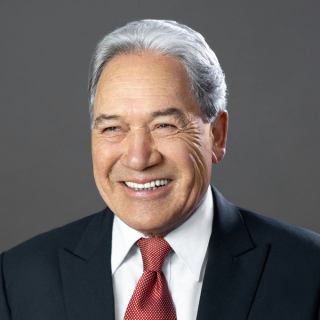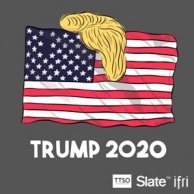
Practical information
Registration for this event is now closed.
In the aftermath of the November elections, Ifri's Program on North America held the 19th edition of its annual conference on the United States.
The conference discussed the election results as well as the unusual transition period. From restoring the environmental policy to managing the pandemic crisis and dealing with the U.S.-China strategic rivalry, the webinar also addressed the most burning issues that the Biden administration will have to face.

Two Zoom sessions were held :
. On December 10th from 4:00pm to 5:30pm (Paris time) - 10:00am to 11:30am (Washington time)
. On December 11th from 4:00pm to 6:00pm (Paris time) - 10:00am to 12:00am (Washington time)
The conference was held in English without translation
Thursday, December 10th - 10:00-11:30am (EST)
Panel 1: U.S. Politics in the Aftermath of the November Elections
The Trump presidency has exacerbated the polarization in the country and has disrupted many aspects of American politics, in terms of both form and content. What did the election results reveal? What will be the future orientations of the two parties and their electorate? What will be the priorities of the Biden administration, and how much leeway will it have with Congress?
- EJ Dionne: Professor, Georgetown University and Harvard University, Senior Fellow, the Brookings Institution, Columnist,The Washington Post, NPR and MSNBC
- Henry Olsen: Senior Fellow, Ethics and Public Policy Center, and Opinion Columnist, The Washington Post. Dr Olsen studies American politics, in particular conservatism and populism
- Célia Belin: Visiting Fellow, Center on the United States and Europe at Brookings, author of Des Démocrates en Amérique: L'heure des choix face à Trump (2020)
- Ramesh Ponnuru: Visiting Fellow, American Enterprise Institute and Senior Editor, National Review
Moderator: Laurence Nardon, Research Fellow, Head of Ifri's North America Program
Friday, December 11th - 10:00-12:00am (EST)
Panel 2: Biden's Foreign Policy
President-elect Joe Biden has already announced some of the foreign policy decisions he will take following his inauguration. All of them will not break from his predecessor's legacy. What will his policy towards the Middle East, China and Europe look like?
Keynote speaker:
Walter Russell Mead: Distinguished Fellow in Strategy and Statesmanship, Hudson Institute, Professor of Foreign Affairs and Humanities, Bard College, Global View Columnist, The Wall Street Journal.
- Stephen Wertheim: Deputy Director of Research and Policy, Quincy Institute, Research Scholar, Saltzman Institute of War and Peace Studies at Columbia University, Historian of the United States in the world
- Kristin Diwan: Senior Resident Scholar, Arab Gulf States Institute in Washington, expert on Gulf states and their relations with the U.S
- Benjamin Haddad: Director of the Future Europe Initiative, Atlantic Council, expert in European politics and transatlantic relations
- Alexander Lennon: Editor-in-Chief, The Washington Quarterly, Professorial Lecturer, George Washington University, with a focus on the Indo-Pacific region
Moderator : Laurence Nardon, Research Fellow, Head of Ifri's North America Program
The Zoom link were sent by email to registered participants the day before the webinar.
Find out more
Malgré la victoire de Biden, le Parti démocrate doit reconquérir son électorat
Dans le dernier épisode de Trump 2020, nous nous interrogions sur l'avenir du Parti républicain après la défaite de Donald Trump. Cette semaine, nous allons voir ce qu'il en est du côté des Démocrates.
The Biden-Harris Election: A Respite In View Of What?
I am writing this seventh letter on Sunday, November 8. Yesterday, the world press proclaimed the victory of Joe Biden and Kamala Harris. However, Donald Trump has filed lawsuits in several states, which few people believe have any chance of succeeding. At this point, then, the present occupant of the White House can be said to have joined the narrow circle of one-term presidents. Other immediate observations come to mind.
The US-China Trade War: What Is the Outcome after the Trump Presidency?
One of Donald Trump’s campaign promises in 2016 was to end China’s “cheating” on trade and to reduce America's trade deficit by imposing significant tariffs on U.S. imports of Chinese products. This study draws up a first assessment of his policy - and of the "trade war" which stemmed from it.
L’inégalité du Collège électoral aux États-Unis : comment réparer la démocratie américaine ?
Since the start of the 21st century, the flaws of the Electoral College, which completes the election process of the president of the United States by indirect universal suffrage, are the target of stronger than ever criticism.
Related Subjects
Other events

Navigating War, Reforms, and Secure Future: Ukraine’s EU and NATO Accession Path
Exclusive conve

Lunch debate with Winston Peters, Deputy Prime Minister and Minister of Foreign Affairs of New Zealand
Discussion co-chaired by Thierry de Montbrial, Executive Chairman of Ifri, member of the Academy of Moral and Political Sciences, and Marc Hecker, Deputy Director of Ifri (in English without translation).

Shaping Europe’s Technological Sovereignty
In the wake of Donald Trump's re-election in the United States, Europeans face a crucial imperative: rethinking their sovereigny, especially in the technological realm. What will be the strategic priorities and action levers of the new European Commission on this issue? What assessment can we make of the previous Commission’s achievements and challenges in navigating Sino-American technological competition, transatlantic dependencies, and emerging global partnerships?















